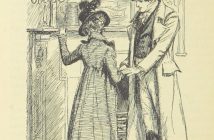As of late, you may be forgiven for thinking that diversity is a dying term. 2016 appeared to be pushing us so far right that we were at risk of falling off of the wing altogether. With the controversial Brexit in the UK and the election of a particularly discriminatory figure in the US, many humanitarian beliefs and essences of an inclusive global landscape have been thrown into a state of uncertainty. This is where the arts come in. Following last year’s Academy Awards and the (arguably over emphasized) outrage caused by the lack of diversity among the nominees, cinema was calling for more multiplicity across the form. It seems, that in the current political climate, the timing of films such as Barry Jenkins’ Moonlight, Garth Davis’ Lion, Denzel Washington’s Fences and Theodore Melfi’s Hidden Figures couldn’t have been better; focusing on stories which reflect something more than the isolated dystopia which many feel is dawning on us.
The release of 2017’s Oscar nominations was met with a certain relief at the inclusions of the likes of Jenkins, Washington, Patel and Harris in their respective categories, seeming as though the academy had been listening to the cries of many this time last year. With a total of six nominations for black actors and further diversity throughout the off screen categories it appears as though the Academy are taking steps for a more varied representation of cinema’s talents. However, the issue of diversity at the Oscars isn’t as simple as black or white. Some have feared that this year’s inclusive nominations list is a result of fear for a negative reaction rather than a rewarding of merit. This is not to say that any of this year’s nominees are un-deserving of their recognition; Denzel Washington and Viola Davis’ performances in Fences are magnificent and Barry Jenkins’ direction of Moonlight has been widely acclaimed.
It is also true that the blame should not rest entirely on the shoulders of the Academy. Last year’s nominations were all earned in their own right regardless of colour. With the exception of only a few snubs, particularly Elba for his performance in Beasts of No Nation, it could be said that the responsibility for the Oscars’ lack of diversity shouldn’t be attributed to the Academy but to the industry itself for not providing enough opportunities for non-white people. In other words, we were pleading to the wrong people. The ‘#OscarsSoWhite‘ campaign which dominated twitter focused its anger at the academy with little argument for who they would have nominated in exchange, with many citing Will Smith’s mediocre performance in Concussion, it proved clear that who they really should have been gunning for were Hollywood writers.
It is here that the recognition provided by the Academy Awards exudes its importance in the film industry. The Oscars selecting all white acting nominees for the previous 3 years shined a dark red spotlight onto mainstream cinema, defining the deep shadows of the production process. Diversity was not being expressed in writing, inclusiveness not practiced during casting, and dominant audiences were not watching a broad enough range of films. But that all seems to be changing, as if a creative reaction to the immense saturation of white culture and divisive politics: Cinema has answered and the Academy have noticed. This year’s multi-cultural line-up of nominees is only the beginning. We need to push it further, by watching a wider range of films and supporting voices from all backgrounds. We can make the industry listen and soon enough diversity will flourish.




